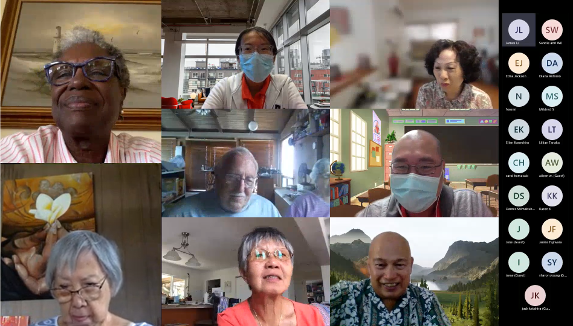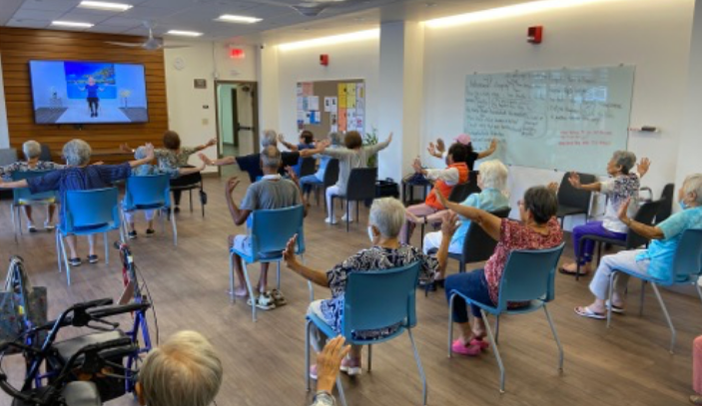Center on Aging Helping Build an Age-Friendly Honolulu
Honolulu is becoming a more age-friendly place to live thanks to a collaborative project involving the City and County of Honolulu, the University of Hawaiʻi at Mānoa Center on Aging and community partners committed to changing mindsets about aging and working together to build services and supports that help people age safely and meaningfully.
“Age-Friendly Honolulu is an initiative that started in 2014,” explained Dr. Christy Nishita, director of the Center on Aging. “We strive to promote this concept called ‘active aging’ where older adults are empowered to actively engage and participate in activities.”
The initiative is aligned with the World Health Organization’s (WHO) Global Network of Age-Friendly Cities and AARP National’s Network of Age-Friendly Communities. In 2005, WHO developed a guide “to help communities implement policies, services and infrastructure that support older adults to live in healthy and vibrant cities as they grow older.”
A milestone was achieved locally in 2018 when an Age-Friendly Honolulu ordinance was passed (Bill 54), which required and signified a commitment by the City and County of Honolulu to be “age-friendly.” Areas of particular interest include outdoor spaces and buildings; transportation; housing; communication and social involvement; civic participation and involvement; community support and health services.
“We believe that these domains need attention and change in order for Honolulu to become a more age-friendly city,” Nishita said.
The Center on Aging recently released an Age-Friendly Honolulu Annual Report (2022-2023) available on the Center’s website. The report highlights the City’s efforts to become more age-friendly and profiles a number of specific projects and programs.
“We know that by 2030, more than a quarter of our population will be over the age of 60,” Honolulu Mayor Rick Blangiardi writes in an introductory message in the annual report. “I can tell you first hand, people over 60 have so much to contribute to their families, to their communities, and to our world.”
The initiative, which is on-going, has several underlying goals, namely to: 1) enable residents of all ages to actively participate in activities that keep them socially engaged, healthy, and active, particularly at the oldest ages; 2) provide kūpuna with meaningful roles in the community, including mentors, volunteers, or through intergenerational programming; and 3) remove barriers to support community inclusion and accessibility for persons of all abilities.


One of the many programs mentioned in the annual report is a relatively new initiative called KūpunaU. As described in the annual report, “KūpunaU is a virtual congregate meal program (Title IIIC-1) designed to overcome challenges related to COVID-19 (such as the temporary closure of congregate meal sites, increased social isolation, and reduced access to grocery stores), thereby extending the impact to kūpuna who were previously unable to participate.”
Developed through the leadership of Lanakila Pacific, which was awarded an Administration for Community Living Innovations in Nutrition grant, KūpunaU provides food for both the body and mind by combining meal programs with access to classes and activities that promote improved health and increased socialization. Community partners include the City and County of Honolulu Elderly Affairs Division, the UH Center on Aging, the Hawai`i Public Health Institute and others. Currently, up and running as part of a three-year pilot program, KūpunaU allows registered members to browse an activity calendar, sign up for classes that are held around the island, and find resources all in one place.
